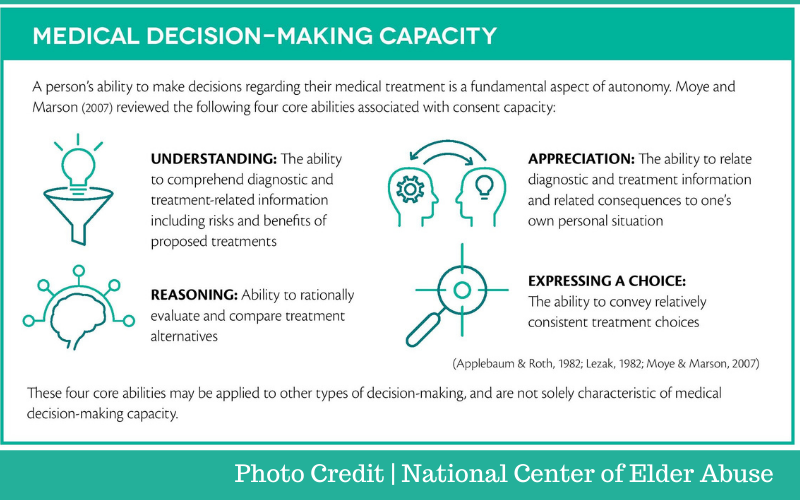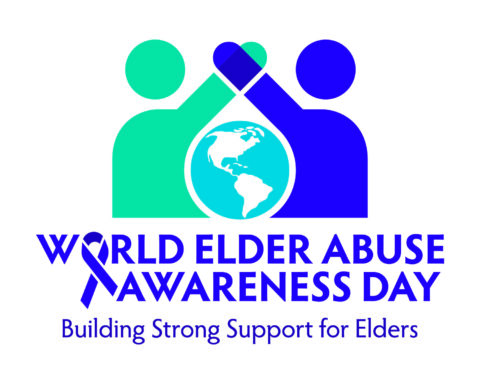Original Post | National Center on Elder Abuse
There are many factors relevant to decision-making ability of older people including changes in the brain and cognition and social functioning. These changes can result in decision-making impairments that affect an older person’s ability to pay bills, drive, follow recipes, adhere to medication schedules, or refuse medical treatment (Braun & Moye, 2010; IOM, 2015). Decision-making ability may fluctuate at a given point in time (Falk et al., 2014), and while an older person may lack decision-making ability in one area, they may retain it in other areas (Braun &
Moye, 2010). Decision-making ability is of special concern for the field of elder mistreatment because impaired decision-making can lead to an increased risk for abuse and exploitation among older people (Spreng et al., 2016). Thus, understanding the many factors relevant to decision-making ability is imperative to reduce risk of abuse and exploitation while maintaining and promoting autonomy among older people.
If you notice changes in an older person’s decision-making ability, it is important to seek a medical evaluation to review the individual’s physical and psychological status to identify any conditions that may require treatment. Due to the many different causes, there are many different paths of assessment that may be useful in determining a change in decision-making ability (Braun & Moye, 2010). The physician can refer to other professionals, such as neurologists and behavioral health providers.












